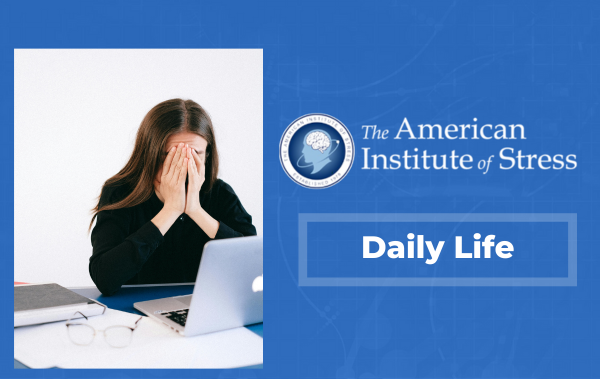 Educators are frontline workers. They bear the brunt of stress from administrators, students, and family. If someone in the field of education is concerned about an issue, it typically involves an educator. If administrators make decisions, it usually impacts all educators. Educators bear the effect of the decisions, good or bad. If a student is unhappy and a parent calls the school, an educator gets involved. If a student needs help, an educator is there to assist.
Educators are frontline workers. They bear the brunt of stress from administrators, students, and family. If someone in the field of education is concerned about an issue, it typically involves an educator. If administrators make decisions, it usually impacts all educators. Educators bear the effect of the decisions, good or bad. If a student is unhappy and a parent calls the school, an educator gets involved. If a student needs help, an educator is there to assist.
Covid-19 has brought tremendous stress upon educators. Not only have they maintained their teaching load, but they have also had to adapt and relearn how to teach students using online and hybrid methods. They adapted these methods with very little training and support. Covid-19 has caused stress to everyone, but teachers are the first to cope with face-to-face dissatisfaction from administrators, parents, and students. According to the Center for State and Local Government Excellence, K to 12 teachers’ overall satisfaction with administration sank to 44% in October 2020. Over 41% noted their hours have increased since the start of Covid-19 due to the extra workload that online/remote work requires, an increased number of parent or student meetings, and an increased number of school meetings.
At the college level, 55% of faculty have considered changing careers or retiring early, according to the Chronicle of Higher Education. The majority of faculty said they are experiencing high frustration, anxiety, and stress with their institutions’ administration. Of the faculty respondents, 75% said their workload increased since January, their work-life balance has declined, and colleges have cut back on salaries and benefits due to Covid-19’s impact. Two-thirds of female faculty reported feeling very stressed with the decline of their work-life balance due to their additional caretaking responsibilities and changes in their school-age children’s schedules. Meanwhile, one constant that hasn’t changed is their work evaluations and expectations of publishing, service work, and student evaluations.
There is hope that Covid-19 will change, and stress levels will begin to decline. Vaccinations are rapidly becoming more available, and the U.S. rate of Covid-19 is dropping. At this point, if your institution is not providing stress support, chances are it will not in the future. Educators need to take matters into their own hands. Here are a few helpful tips to help cope with stress.
Remember to care for yourself. You deserve to be rewarded, and if your institution isn’t offering services to help, then you reward yourself. Set aside time to relax. If reading a book relaxes you, take 15 minutes a day and read. If going to a half-hour walk helps, take some time to walk. WebMD notes that self-care, like exercise, can help you sleep better and increase your mood.
Communicate with co-workers and check-in with one another regularly. Reaching out and talking will allow you not to feel isolated and know that others are experiencing the same thoughts and feelings. When you connect with others, your body releases a hormone that prevents fight or flight and causes you to relax. Talking to positive people may help you gain a new way of looking at the situation.
Remember to laugh. Laughter is medicine for the mind, body, and spirit. WebMD says, “When you laugh, you take in more oxygen. Your heart, lungs, and muscles get a boost, and your body releases those feel-good hormones. Laughter also improves your immune system, lessens pain, and improves your mood for long periods”. Make an effort to watch a comedy or listen to your favorite comedian online. Old reruns of The Office or Seinfeld will surely give you a good ole belly laugh.
Finally, set boundaries with your phone. Most of us are glued to our phones and continuously on them in some manner, texting, reading emails, zooming, talking, or googling information. If possible, stop replying to messages after 7 pm. Unplugging will allow you time to do other things, for example, some self-care! If this seems impossible, start by silencing your phone for an hour and not looking at it. You will be amazed at how less stressed you would feel.
Educators, now more than ever, need to take care of ourselves. We need to remind ourselves that Covid-19 will eventually pass, and life will begin to return to normal. This cycle of Covid-19 is not an easy time to pass through, but we can do it together. Try to use some of the tips mentioned in this article. Remember, you are a fantastic person that deserves to feel better.
By Maria Minor





